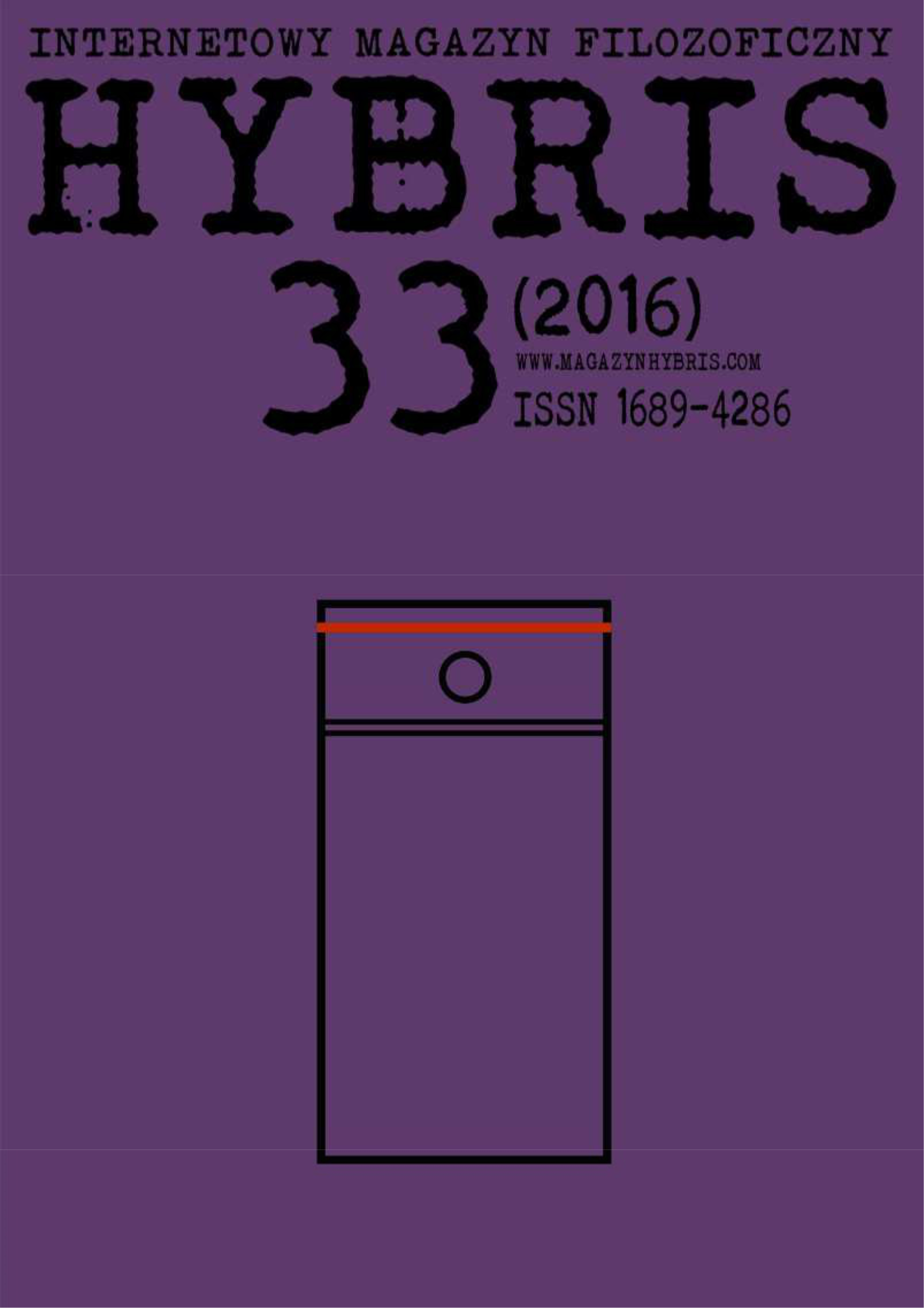O dwóch zarzutach przeciw hedonizmowi
DOI:
https://doi.org/10.18778/1689-4286.33.01Słowa kluczowe:
hedonizm, przyjemność, intuicja, maszyna przeżyć, Sidgwick, Mill, NozickAbstrakt
Our common sense seems to regard hedonism as an unworthy theory of value. Two main arguments, resting on our intuitions, are commonly presented against it. The first ridicules hedonism as “a theory fit for pigs”, that is for people who care only about simple physical pleasures. The second seeks to refute hedonism on the assumption that no one would like to live a life that is nothing else but a hedonic reflection of her or his mind. Robert Nozick used this intuition to build his famous “experience machine example”. The purpose of this article is to suggest that the intuitions underlying these arguments, are based on non-rational presuppositions and therefore are not the best ways to confront hedonism.
Bibliografia
Arytoteles, 2000, Etyka Nikomachejska, tłum. D. Gromska, Warszawa: PWN.
Zobacz w Google Scholar
Bentham, Jeremy, 1958, Wprowadzenie do zasad moralności i prawodawstwa, przeł. B. Nawroczyński, Warszawa: PWN.
Zobacz w Google Scholar
Carlyle, Thomas, Latter-Day Pamphlets, http://archive.org/stream/latterdaypamphle00carl/latterdaypamphle00carl_djvu.txt
Zobacz w Google Scholar
Crisp, Roger, 2001, Mill on Utilitarianism, Londyn: Routledge.
Zobacz w Google Scholar
Crisp, Roger, 2006, Hedonism Reconsidered, “Philosophy and Phenomenological Research”, 73, 619-45.
Zobacz w Google Scholar
DOI: https://doi.org/10.1111/j.1933-1592.2006.tb00551.x
Csikszentmihalyi, Mihaly, 2005, Przepływ, Warszawa: Santorski.
Zobacz w Google Scholar
De Brigard, Felipe, 2010, If you like it, does it matter if it’s real?, “Philosophical Psychology”, 23 (1) (February 2010), 46-49.
Zobacz w Google Scholar
DOI: https://doi.org/10.1080/09515080903532290
Greene, Joshua, 2001, A psychological perspective on Nozick’s experience machine and Parfit’s repugnant conclusion, niepublikowane wystąpienie na konferencji Society for Philosophy and Psychology, Cincinnati, Ohio.
Zobacz w Google Scholar
Hauskeller, Michael, 2011, No Philosophy for Swine: John Stuart Mill on Quality of Pleasure, “Utilitas”, vol 23, no. 4, 428-446.
Zobacz w Google Scholar
DOI: https://doi.org/10.1017/S0953820811000264
Kolber, A., 1994, Mental statism and the experience machine, “Bard Journal of Social Sciences”, 3, 10-17.
Zobacz w Google Scholar
Kahneman, Daniel, Tversky, Amos, 2000, Choices, Values and Frames, New York: Cambridge University Press and the Russell Sage Foundation.
Zobacz w Google Scholar
DOI: https://doi.org/10.1017/CBO9780511803475
Kahneman, D., Knetsch, J., i Thaler, R., 1991, The Endowment Effect, Loss Aversion and Status Quo Bias, “The Journal of Economic Perspectives”, 5 (1), 193-206.
Zobacz w Google Scholar
DOI: https://doi.org/10.1257/jep.5.1.193
Lazari-Radek de, Katarzyna, Singer, Peter, 2014, The Point of View of the Universe, Oxford: OUP.
Zobacz w Google Scholar
DOI: https://doi.org/10.1093/acprof:oso/9780199603695.001.0001
Nozick, Robert, 2010, Anarchia, państwo, utopia, przeł. P. Maciejko, M. Szczubiałka, Warszawa: Aletheia.
Zobacz w Google Scholar
Platon, 2002, Gorgiasz, tłum. W. Witwicki, Kęty: Antyk.
Zobacz w Google Scholar
Sidgwick, Henry, 1907, The Methods of Ethics, London: Macmillian.
Zobacz w Google Scholar
Sumner, Leonard, 1996, Welfare, Happiness, and Ethics, Oxford: OUP.
Zobacz w Google Scholar
Weijers, D., 2013, Intuitive Biases in Judgments about Thought Experiments: The Experience Machine Revisited, “Philosophical Writings”, 41, 17-31.
Zobacz w Google Scholar
Weijers, Dan, 2014, Nozick's experience machine is dead, long live the experience machine!, “Philosophical Psychology”, vol. 27/4, 513-535.
Zobacz w Google Scholar
DOI: https://doi.org/10.1080/09515089.2012.757889
Pobrania
Opublikowane
Jak cytować
Numer
Dział
Licencja

Utwór dostępny jest na licencji Creative Commons Uznanie autorstwa – Użycie niekomercyjne – Bez utworów zależnych 4.0 Międzynarodowe.
Funding data
-
Narodowe Centrum Nauki
Grant numbers 1371/B/H03/2011/40






